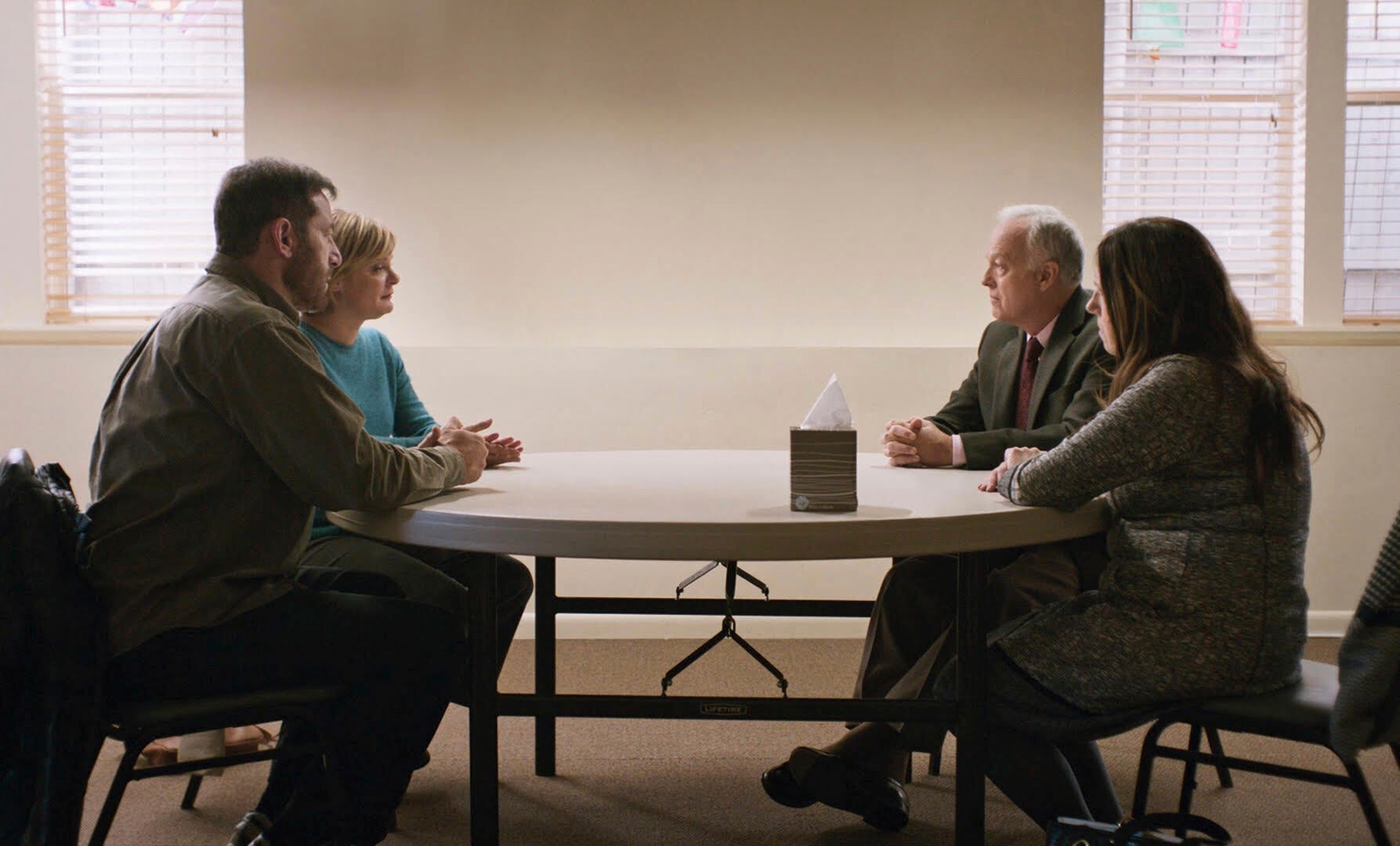Review: In 'Mass,' a wrenching dialogue after tragedy
The piercing traumas of school shootings, when they’ve made it into the movies, have seldom carried quite the right tone

Your support helps us to tell the story
From reproductive rights to climate change to Big Tech, The Independent is on the ground when the story is developing. Whether it's investigating the financials of Elon Musk's pro-Trump PAC or producing our latest documentary, 'The A Word', which shines a light on the American women fighting for reproductive rights, we know how important it is to parse out the facts from the messaging.
At such a critical moment in US history, we need reporters on the ground. Your donation allows us to keep sending journalists to speak to both sides of the story.
The Independent is trusted by Americans across the entire political spectrum. And unlike many other quality news outlets, we choose not to lock Americans out of our reporting and analysis with paywalls. We believe quality journalism should be available to everyone, paid for by those who can afford it.
Your support makes all the difference.The piercing traumas of school shootings, when they've made it into the movies, have seldom carried quite the right tone. Even the best intentions in wading into such tragic horrors can come off as insincere, even exploitive.
“Mass ” Fran Kranz's meditative chamber piece, is a sober and wrenching exception. Kranz's film, the veteran actor's first as writer-director, is about two sets of parents who meet, cautiously and with still raw wounds, to talk six years after a school shooting that brought their families together.
Gail (Martha Plimpton) and Jay (Jason Isaacs) lost their son in an attack by the son of Richard (Reed Birney) and Linda (Ann Dowd ), who also died that day. Their meeting, in a nondescript church across from a broad field and snow-dusted mountains, makes up the entire film, one built around an intensely emotional dialogue of grief, regret and maybe catharsis, as performed brilliantly by a quartet of actors.
We don't immediately know the reason for the get-together. Kranz, whose film feels meant for the stage, begins with the anxious table-setting at the church, an Episcopalian chapel. A church volunteer (Breeda Wool, also excellent) makes nervous preparations with a mediator (Michelle N. Carter) who arrives in advance for a meeting that's never specified, as if it's too sensitive to even voice. In its restrained way, “Mass" makes an argument for carefully creating “a space,” literally and figuratively, for speaking about the unspeakable,
“I don’t know if I can do it,” Gail tells her husband as they arrive. “I mean, I don’t know if I can say it.”
Once they're all seated, the talk is initially timid and polite. For us, the sense that we're slowly moving closer to an iceberg of grief only grows. It's the first time they've met but, as we gather in small allusions, they've been through years of public debate. Lawsuits, not between them but from other families of victims, have limited what Richard — a clinical analyzer of the situation, the only one in a business suit — and Linda — a soulful, soft-spoken woman with sensitive, sad eyes — have previously been able to say. She and Gail have written each other before. But slowly the pitch rises.
“Tell me about your son?”
“Why?”
“Because he killed my son.”
The anguished dialogue flows remarkably naturally, even as all struggle to articulate their feelings. Jay and Gail fight to hold down their rage. The fraught conversation sometimes slides into familiar debate points about guns , videogames and mental health, but it mostly steers toward grasping at some understanding. Why did he do it? Could they have done better as parents? Is the loss of one couple greater than the other? Is forgiveness possible? How can they make any sense of it?
“The love we had, it was real. And the truth is, we believed we were good parents, and in some awful, confusing way, we still do,” says Linda. “Is it worse that I thought I was a good mother?”
None of this may be anyone's idea of a happy movie night. But in scratching at real wisdom, “Mass,” which begins playing in theaters Friday, is stirring in its humanity. Kranz's film isn't perfect. As the conversation ebbs and the four parents stagger out of the room and awkwardly part, the movie, too, struggles with how to walk away. But in this plainly photographed, mournful, restrained movie, the back-and-forth is bracingly sincere.
Each actor deserves praise but Plimpton, as a hardened woman trying to unburden herself of her sorrow without at the same time losing a piece of her son, is magnificent. Dowd's performance, too, is so richly empathetic; Linda's melancholy is bottomless but there's something spiritual in how eager she is to ease Jay and Gail's suffering, if she can. The performances are too internalized to seem theatrical. Often, “Mass” is most moving when they're simply listening.
“Mass,” a Bleecker Street release, is rated PG-13 by the Motion Picture Association of America for thematic content and brief strong language. Running time: 110 minutes. Three and a half stars out of four.
___
Follow AP Film Writer Jake Coyle on Twitter at: http://twitter.com/jakecoyleAP